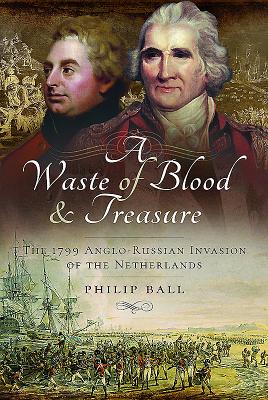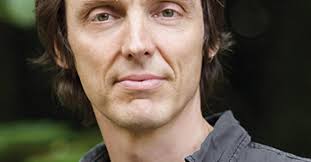

 Pen and Sword History
Pen and Sword History
A Waste of Blood and Treasure: The 1799 Anglo-Russian Invasion of the Netherlands


Key Metrics
- Philip Ball
- Pen and Sword History
- Hardcover
- 9781473885189
- 9.3 X 5.9 X 0.9 inches
- 1.15 pounds
- History > Modern - 18th Century
- English
 Secure Transaction
Secure TransactionBook Description
The largest operation mounted by Pitt's ministry during the French Revolutionary Wars, the amphibious expedition involved the first ever direct cooperation between British and Russian forces, embroiled the armies in five full-scale battles, and secured the capture of the Dutch fleet. As Britain's first major continental involvement since 1795, it played a part in shaping the early careers of many famous military commanders of the Napoleonic Wars. In the end, however, the campaign failed spectacularly. Its inglorious end provoked parliamentary outrage and led to diplomatic rupture between Britain and Russia. The Duke of York never commanded an army in the field again.
This book examines British, French, Dutch and Russian sources to reveal a fascinating tale of intrigue, diplomatic skullduggery and daring action. Spies, politicians, sailors and soldiers all play a part in the exciting story of an expedition that made (and broke) reputations and tested alliances. It recounts in lavish detail the series of battles fought to liberate a people who showed little interest in being saved and explores the story behind the triumphs and failures of this forgotten campaign.
Author Bio
Philip Ball is a freelance science writer. He worked previously at Nature for over 20 years, first as an editor for physical sciences (for which his brief extended from biochemistry to quantum physics and materials science) and then as a Consultant Editor. His writings on science for the popular press have covered topical issues ranging from cosmology to the future of molecular biology.
Philip is the author of many popular books on science, including works on the nature of water, pattern formation in the natural world, color in art, the science of social and political philosophy, the cognition of music, and physics in Nazi Germany. He has written widely on the interactions between art and science, and has delivered lectures to scientific and general audiences at venues ranging from the Victoria and Albert Museum (London) to the NASA Ames Research Center, London's National Theatre and the London School of Economics.
Philip continues to write regularly for Nature. He has contributed to publications ranging from New Scientist to the New York Times, the Guardian, the Financial Times and New Statesman. He is a contributing editor of Prospect magazine (for which he writes a science blog), and also a columnist for Chemistry World, Nature Materials, and the Italian science magazine Sapere. He has broadcast on many occasions on radio and TV, and is a presenter of "Science Stories" on BBC Radio 4. He is a Fellow of the Royal Society of Chemistry, sits on the editorial board of Chemistry World and Interdisciplinary Science Reviews, and is a board member of the RESOLV network on solvation science at the Ruhr University of Bochum.
Philip has a BA in Chemistry from the University of Oxford and a PhD in Physics from the University of Bristol.
Source: PhilipBall.co.uk
Videos
No Videos
Community reviews
Write a ReviewNo Community reviews